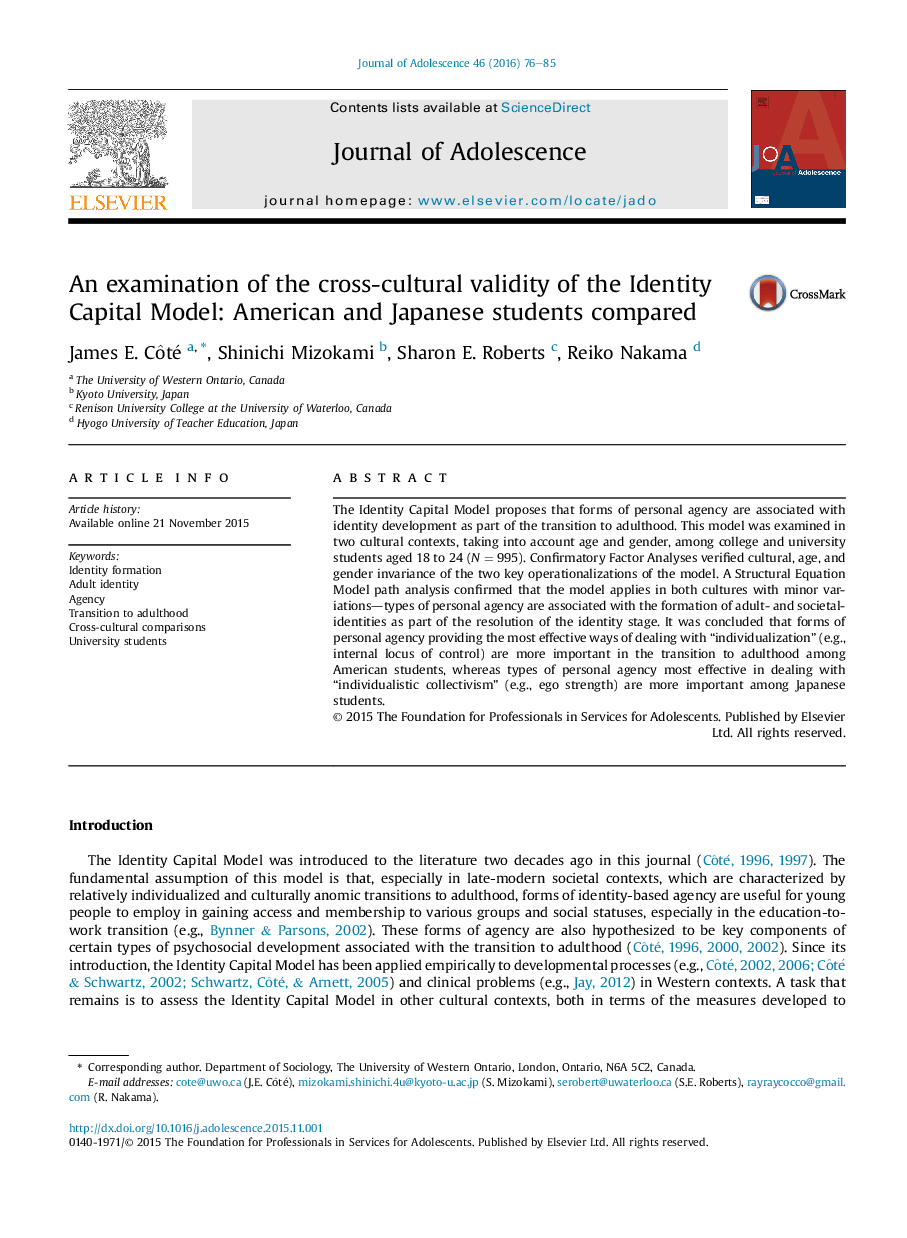| Article ID | Journal | Published Year | Pages | File Type |
|---|---|---|---|---|
| 7241290 | Journal of Adolescence | 2016 | 10 Pages |
Abstract
The Identity Capital Model proposes that forms of personal agency are associated with identity development as part of the transition to adulthood. This model was examined in two cultural contexts, taking into account age and gender, among college and university students aged 18 to 24 (NÂ =Â 995). Confirmatory Factor Analyses verified cultural, age, and gender invariance of the two key operationalizations of the model. A Structural Equation Model path analysis confirmed that the model applies in both cultures with minor variations-types of personal agency are associated with the formation of adult- and societal-identities as part of the resolution of the identity stage. It was concluded that forms of personal agency providing the most effective ways of dealing with “individualization” (e.g., internal locus of control) are more important in the transition to adulthood among American students, whereas types of personal agency most effective in dealing with “individualistic collectivism” (e.g., ego strength) are more important among Japanese students.
Keywords
Related Topics
Health Sciences
Medicine and Dentistry
Public Health and Health Policy
Authors
James E. Côté, Shinichi Mizokami, Sharon E. Roberts, Reiko Nakama,
